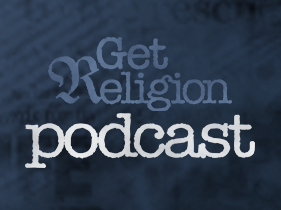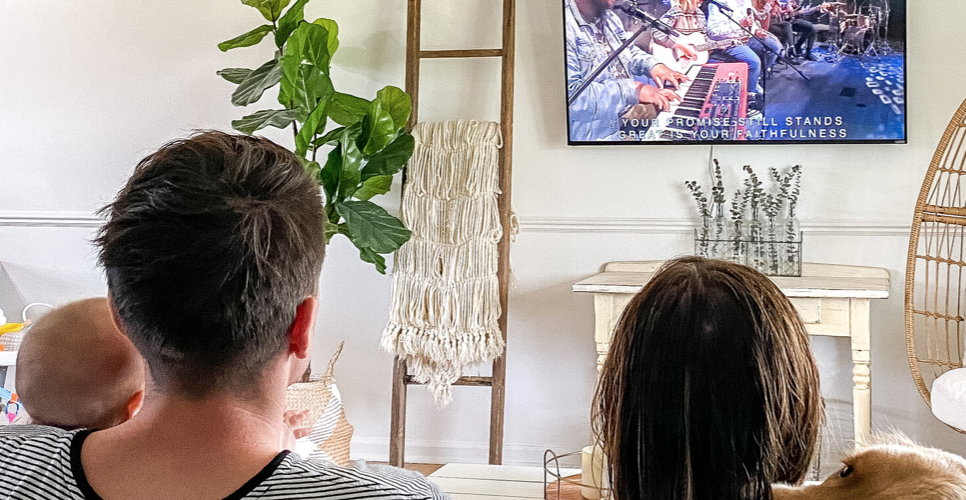Right-wing pastor Rodney Howard-Browne is not about to cancel church or prevent congregants from shaking hands because they are not a bunch of “pansies.” pic.twitter.com/C36kBIEWqF
— Right Wing Watch (@RightWingWatch) March 15, 2020
For several weeks now, churchgoers — and journalists — have been waiting to see what would happen at Easter, Passover and Ramadan.wisely,
We don’t have all the answers, yet. But it’s clear that in the overwhelming majority of cases, Christians in North America and around the world will be observing Holy Week and Easter at home, watching small teams of clergy and musicians celebrate the holiest rites of the Christian year while striving to follow the fine details of “shelter in place” orders.
In my own church — Eastern Orthodoxy — we will celebrate Pascha a week after Western Easter. Clergy in the Diocese of the South (Orthodox Church in America) just learned that our Archbishop Alexander has (I believe) set strict standards (.pdf here) for his parishes all across the Sunbelt. People will stay home through it all — Holy Week and Pascha — watching five-person teams of clergy and chanters do as many of the long, ancient rites as they can. Click here for Rod Dreher’s poignant post on that, which includes:
Did you know that the Church of the Holy Sepulcher in Jerusalem, the one built over the site where Jesus died, was buried, and was resurrected, has been closed for the first time since … the Black Plague, in the 14th century? The right way to see this is that we Orthodox Christians are being asked to make an absolutely extraordinary sacrifice for the life of the world — so that this plague which has killed, and will kill, so many, and will have reduced so many to poverty, can be defeated. As the old-school Catholics like to say about sacrifice, we should, “offer it up” as an extreme sharing of Christ’s passion. We will know in a way we never have the meaning of the crucified Jesus’s words, “My God, my God, why have you forsaken me?”
All of that loomed in the background as “Crossroads” host Todd Wilken and I recorded this week’s podcast (click here to tune that in).

For the most part, we tried to look past that story and down the road at the long-term legal implications of other religion-beat headlines caused by the coronavirus crisis.
I am referring to the small number of evangelical Protestants who have been rebelling against government orders to “shelter in place.” Julia Duin and I wrote about the coverage of some of these cases here (“About Rodney Howard-Browne and what happens to Easter, Passover and the hajj during a plague“) and then here (“All megachurches are not alike: NYTimes noted Howard-Browne arrest, but didn’t leave it at that“).
What happens if — as some are planning — clashes between a few churches and state officials end up in court?
As I said in a GetReligion post the other day (“First Amendment and God’s power: Press enters debate on believers gathering for worship“), I think the coronavirus crisis is a case in which — in terms of church-state law — we can see a “clear threat to life and health.” That’s one of the circumstances (“fraud” and “profit” are the others) in which courts have consistently said the free exercise of religion can be limited.
So what happens if the few pastors involved in this rebellion continue to do that dangerous thing that they do, placing their own people and the public at a greater risk?
To be blunt, we could have another church-state disaster on our hands, something like Bob Jones University vs. the United States or Employment Division vs. Smith. I say that as an old-school liberal on First Amendment issues.
But don’t take my word for it, readers and my fellow journalists. The other day I pointed you to a Providence essay by conservative scholar Paul Marshall, who made a case for religious leaders to show restraint and honor the “shelter in place” orders.
Now, heed First Amendment specialist David French — in a piece that is behind a firewall at The Dispatch. The headline:
When Bad Facts Make Something Worse than Bad Law
Irresponsible and immoral acts can undermine cultural support for the First Amendment
Here are two key pieces of that puzzle:
Because one of the most important civil libertarian projects in constitutional law has been the effort to restore the Free Exercise Clause of the First Amendment to its rightful place in the Bill of Rights. In 1990, Antonin Scalia and the rest of the Supreme Court’s conservative justices ripped out the heart of the Free Exercise Clause, deciding in Employment Division v. Smith that free exercise claims would fail in the face of any “neutral law of general applicability.”
The practical result of the ruling meant that an expanding state would lead invariably to a religious retreat, an outcome at odds with the intent of the American founding and the text of the American Constitution. I do not believe it was any coincidence that this dreadful case was tied to an individual’s asserted right to religious use of a hallucinogenic drug (peyote) during the height of America’s war on drugs and during the height of one of America’s worst crime waves. Bad facts made bad law. The court could not see the virtue in freedom.
What does this have to do with Howard-Browne and company?
French notes that — for three decades — religious-liberty activists have been trying to weaken the Smith ruling. The key: Educating Americans (and newsroom professionals) about the role that religious liberty plays in old-school First Amendment liberalism and its appeals for citizens with radically different beliefs to tolerate one another.
Then along comes something like the coronavirus crisis:
I can think of few things better calculated to undo this good work than reckless free exercise during a national pandemic. … Florida sheriff’s deputies arrested Pastor Rodney Howard-Browne for violating a county order directing residents to stay at home except for “essential services,” and corporate church worship was not deemed “essential.” You may remember Browne from a previous edition of the French Press. He’s the pastor who declared that he wouldn’t close church because they were “raising up revivalists, not pansies.”
As my friend Casey Mattox, a senior fellow for free expression at the Charles Koch Institute, tweeted after Browne’s arrest, “This is how you get Employment Division v. Smith.” Like night follows day, irresponsible exercise of civil liberties all too often leads to the cultural and political devaluation of those liberties and —ultimately — to the suppression of those liberties.
There are painful, troubling and tragic times. I also know there are way too many stories for the average newsroom to handle, while publishers swim in red ink. But, yes, the religion-beat angles in this global crisis cannot be avoided even as journalists struggle to stay safe and do their jobs.
Among those stories, journalists need to know that the legal stakes could not be higher for millions of religious believers.
Hard times tend to lead to hard decisions. This can lead to bad cases that lead to bad court decisions and bad laws. I’ve said it over and over here at GetReligion, but I will say it again: Religious believers need to care about both halves of the First Amendment and the same is true for journalists.










